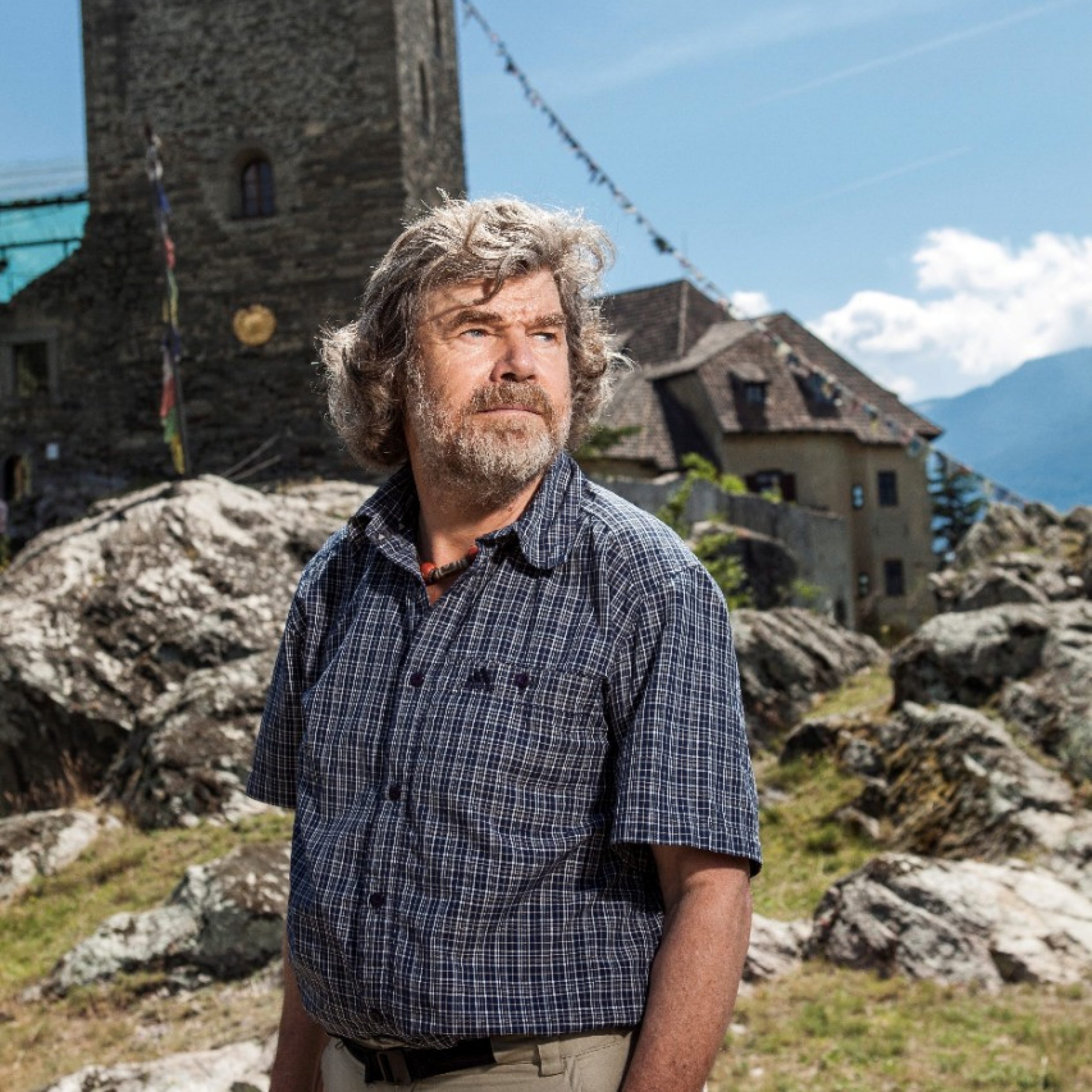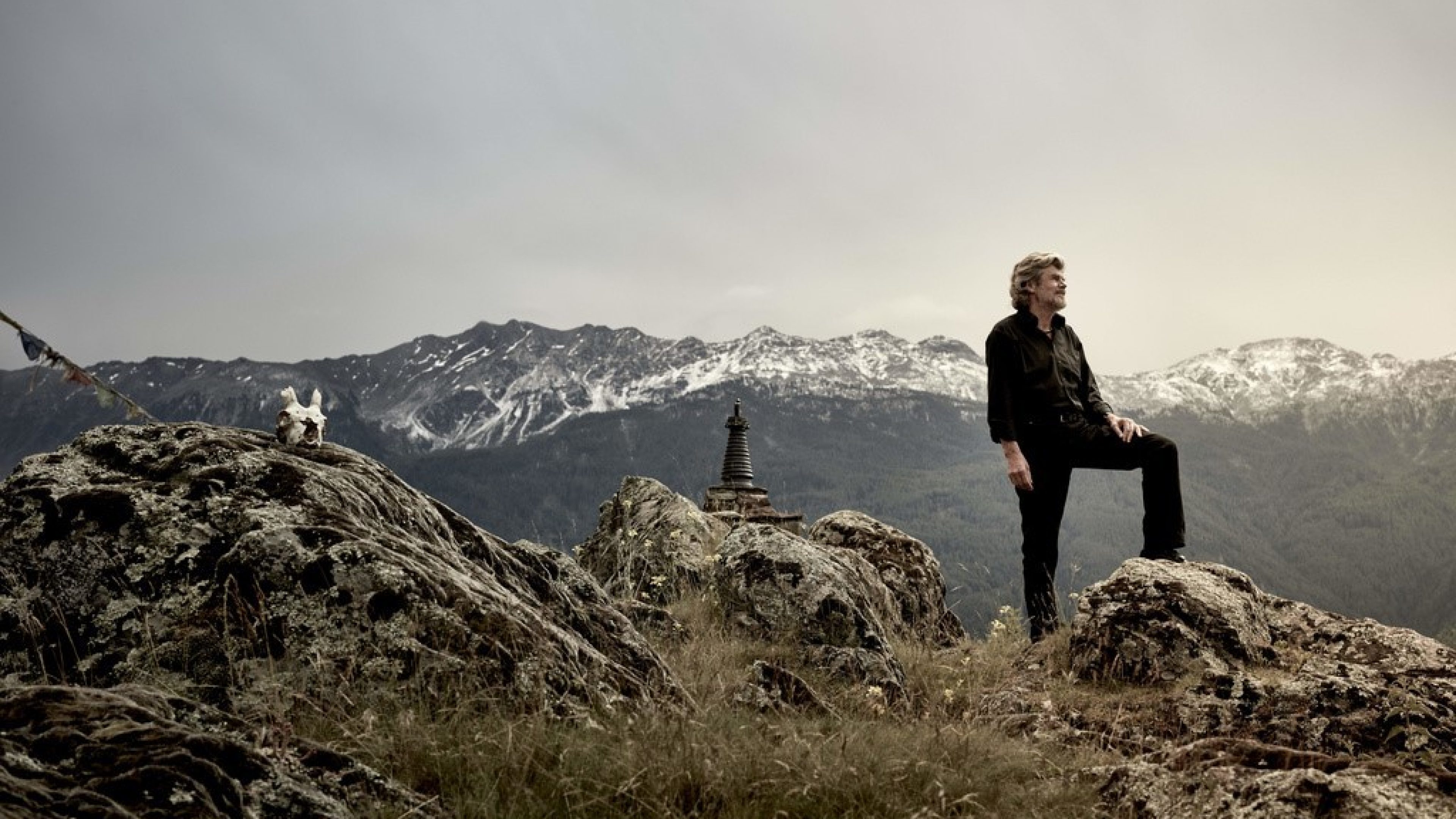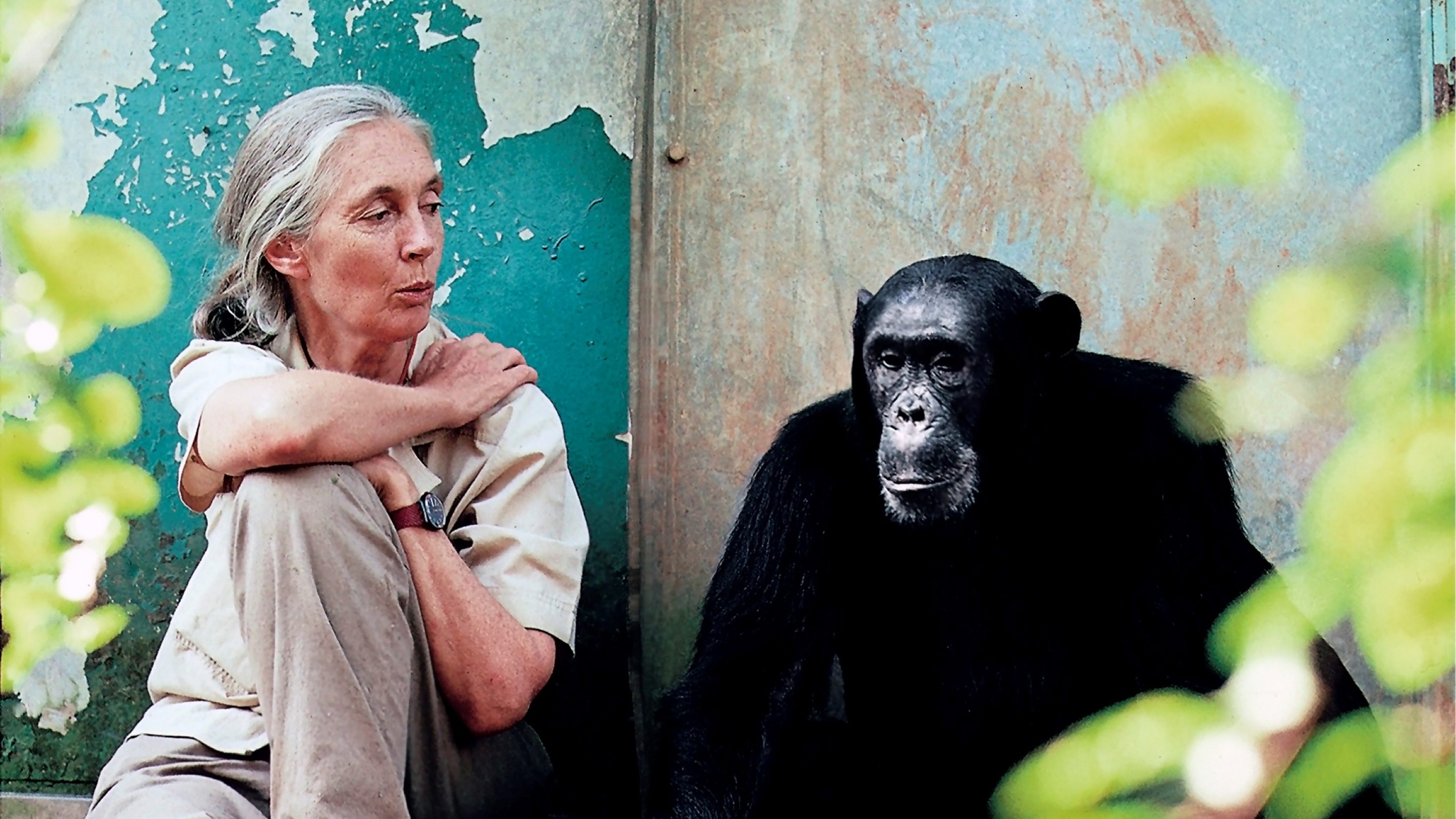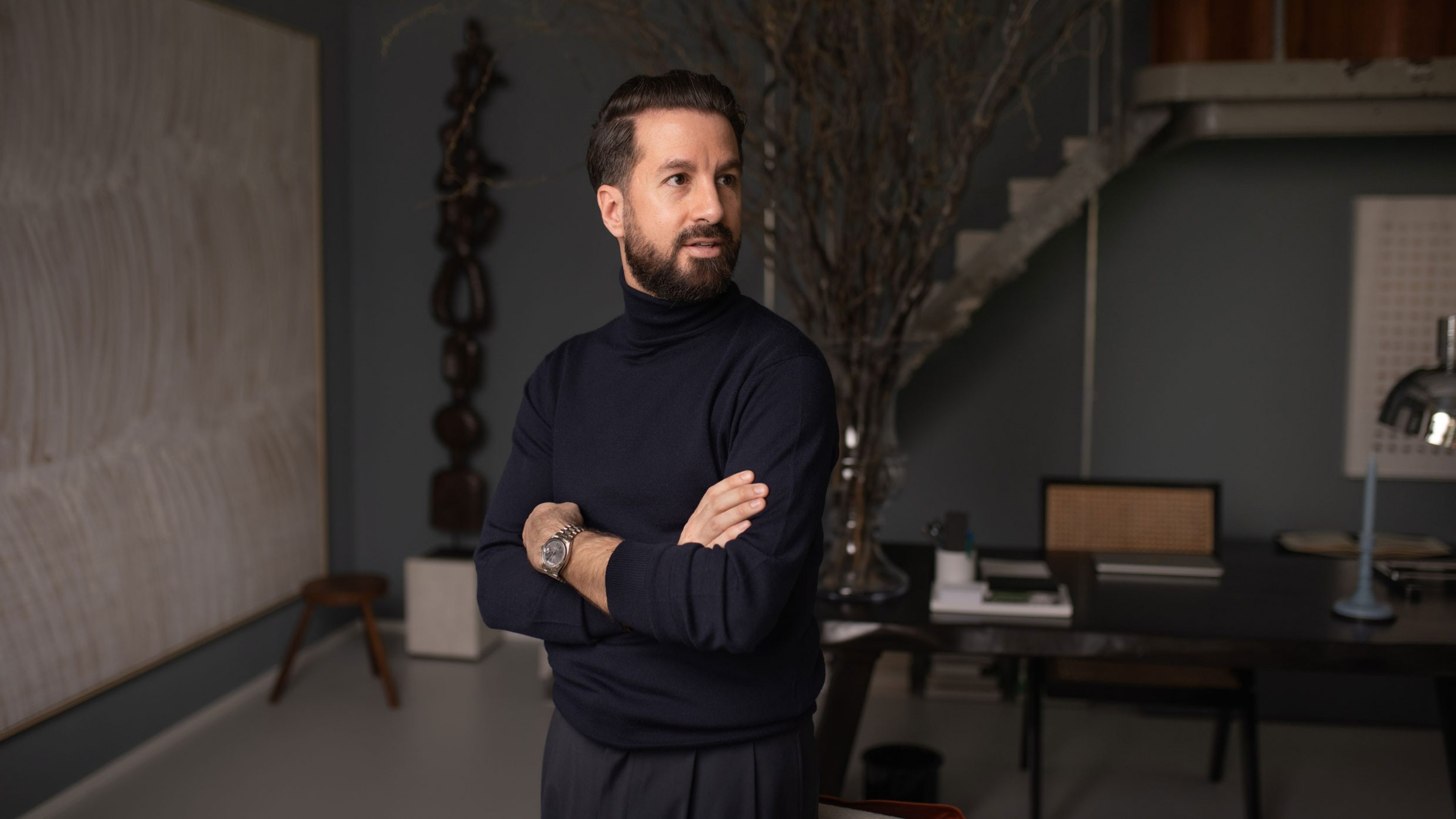Reinhold Messner has spent his life going where people do not belong: 8000-meter peaks, the Antarctic, the desert... Where does his desire for freedom come from? And how does he deal with it now that he is older?
In your books and speeches, you talk about more than just your adventures. You also offer passionate arguments on behalf of the freedom of humankind. Why is self-determination so important to you?
Because it is the focus of all that I do, whether I’m climbing a mountain, crossing a desert or building my Mountain Museum in South Tyrol. I want to assume responsibility and be independent. Self-determination is sacred to me.
Where does this desire come from?
I grew up during the post-war period in a world where paternalism was common. In our village the priest and a few other moralists told us how to live our lives. Even as a young boy, I sensed that this was wrong and by the time I was in secondary school I started to rebel.
What was the trigger?
Once during our school holiday, some friends and I climbed the challenging “Bonatti route” on the north face of the Matterhorn. Because of a sudden drop in temperature we needed more time for the climb and my toes froze. As a result, I was six days late getting back to school. When the German teacher asked where I had been, I answered: “That’s none of your concern. I’ve spoken to the headmaster and have been excused.” From that point on, that teacher harassed me. He quizzed me on material we hadn’t covered and tried to embarrass me. Instead of becoming flustered, I said: “Go on if it makes you happy.” In the end, he saw to it that I didn’t pass my school-leaving exams and I had to repeat them a year later.

Is the ability to live a self-determined life innate or can it be learned?
I believe it lies in each of us, but most do not have the boldness to act on it. We’ve lost our nerve because we live in a vast web of safety and have abandoned much of our personal responsibility. People need to be made aware again that they have free will. But they must also be given the opportunity to develop a self-determined personality. This requires being given the requisite amount of trust as a child.
Who did this for you?
My mother. My father wanted to raise us to be good citizens, but she gave us freedom. When I was a young boy, I set off with my brother at three in the morning with ropes and hooks to climb a rock face near our house. Our mother never showed any fear and did not try to keep us from doing it. Instead, she woke up and made us breakfast at an ungodly hour. She did so with the full awareness that we might never return home.
Is mountain climbing the purest form of self-determination?
It is a struggle with the dangers of nature, the untamed world with no human infrastructure. We enter an archaic, lawless world. In doing so, we are anarchists. There are no rules for climbing an 8000-meter peak. You only learn how to do it as you climb. Up there, no one can assert power based on their role or position. Survival cannot be reduced to a simple morality of right or wrong. During crucial situations on a mountain, you don’t need an external judge.
Self-determination means making decisions. What has been the most difficult decision you’ve ever made?
Just before I descended from Nanga Parbat in 1970. The route down the unknown Diamir side was life-threatening for my brother Günther, who was seriously ill. But waiting would have meant certain death for us no later than the second night. At moments like that your self-preservation instinct kicks in. Instead of doing nothing, you attempt the craziest, the most impossible thing, and that’s what we did.
You lost your brother during this attempt. What did this event teach you?
Without this experience I would not be who I am today. I did not become who I am because of my successes, but rather because of my frequent failures. This experience will always be my responsibility and will remain in my memory forever. The interaction of people and nature is always a story that is primarily dictated by nature. People can only react – they may do so correctly or they may do so incorrectly. They’ll need a bit of luck if they want to survive.
Assuming responsibility also means preparing for the future. When did you start doing this?
I didn’t look ahead until I was 40. I was semi-nomadic, moving around without thinking about the future. It was only then – following the birth of my first child – that I was able to afford something and I bought the Juval Castle, which had fallen into disrepair. My father thought it was totally crazy, but it was the best investment of my life.
You turn 75 this year. Are the adrenaline rush and the joy of surpassing physical boundaries replaced by something else as you age?
I’ve adjusted my goals in terms of skill and endurance. Nowadays, the most I’ll do is climb a 6000-meter peak or accompany my son on a climb that is moderately difficult. But I’ve become more culturally active and, although almost no one will believe me, I find it just as satisfying to open a museum as it was to climb Everest without an oxygen mask when I was 30. I want to bring ideas to life. Waiting until the end to look back and say that I had a successful life behind me would be much too late. We are only truly happy when we no longer seek happiness.
Do you believe in life after death?
No. I think religions are a great comfort in life, but they are all man-made. This is how I view the period after death: we dissolve into timelessness, infinity, total silence and emptiness.
How important is self-determination to you today?
It remains essential. I live a self-sufficient life in our renovated Juval Castle. My son and I have just started a film production company. The television companies that we work with are trying to assert themselves over us and I’m thinking about forgoing their money and making my own films. Self-determination is not given to you. You have to stand up for yourself and be assertive.

Reinhold Messner
Pushing the limits
Reinhold Messner (74) was the first person to climb the 14 tallest peaks in the world – without the aid of supplementary oxygen. He has also crossed the Antarctic, Greenland and the Gobi Desert. From 1999 to 2004, Reinhold Messner was a member of the European Parliament with the Green Party. He is the author of several dozen books and goes on a speaking tour every year. In 2006 he opened the Messner Mountain Museum, a mountain-climbing museum comprising six different sites. The adventurer is married to his second wife, has four grown children and lives in South Tyrol
Header Image: KEYSTONE/APA/Ehm Ian

.jpg)

